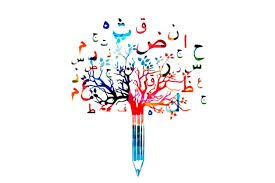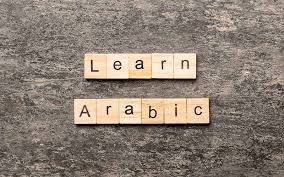Moving to or visiting Dubai is an experience like no other. The city is a dynamic blend of ultra-modern skyscrapers, rich traditions, luxury living, and warm-hearted communities. While English is widely spoken, Arabic remains the heartbeat of the city’s culture. From friendly greetings in the souqs to casual banter with taxi drivers, knowing a few everyday Arabic words can instantly make your Dubai life feel more personal and connected.
It’s not about mastering the language overnight. It’s about sprinkling a little local flavour into your conversations and making those simple, everyday moments a little brighter. Ready to feel more at home in Dubai? Here are some must-know Arabic words that will level up your day-to-day interactions and help you bond with locals.
Salam (سلام) — Peace, Hello
Start with the simplest yet warmest word in Arabic: Salam. Meaning peace, it’s a casual, friendly greeting used everywhere in Dubai. Walk into a store, hop into a taxi, or pass someone in your building — a simple “Salam!” accompanied by a smile can open doors, quite literally.

You can also say Salam Alaikum (peace be upon you), and the response you’ll often hear is Wa Alaikum Salam (and upon you peace). It’s a beautiful, respectful exchange that makes everyone feel acknowledged.
Shukran (شكرا) — Thank You
A thank you can go a long way, especially when spoken in the native tongue. Saying Shukran after receiving your karak tea or getting help from a shop assistant adds a touch of charm to your manners. It’s a small word, but it carries so much warmth and appreciation.
Yalla (يلا) — Let’s Go / Hurry Up
One of the most popular Arabic words you’ll hear on the streets of Dubai is Yalla. It’s an energetic way to say “let’s go” or “hurry up.” Friends use it when heading out for dinner, parents use it to rally their kids, and you’ll often hear it in traffic or markets.
Try saying “Yalla, let’s grab some shawarma!” and see how easily it rolls off the tongue.
Habibi / Habibti (حبيبي / حبيبتي) — My Love / Darling
Whether you’re male or female, this is a word you’ll hear often. Habibi is for males, and Habibti for females. While it literally means “my love,” it’s commonly used between friends, colleagues, and even strangers in a friendly, affectionate way.
Your barber might call you Habibi, or a colleague might cheer you up with a cheerful Yalla Habibti! It’s a word that carries warmth and endearment in everyday conversation.
Mafi Mushkila (مافي مشكلة) — No Problem
This one’s your go-to phrase when you want to show you’re easygoing or to brush off a minor issue. If someone apologises for a delay or small mistake, respond with Mafi Mushkila. It’s like saying, “No worries, it’s fine.”
Using this phrase with a relaxed smile often surprises people in the best way, letting them know you’re chill and approachable.
Inshallah (إن شاء الله) — God Willing
Another deeply embedded phrase in everyday Arabic conversation is Inshallah. It means “God willing” and is often used when referring to the future. Someone might say, “See you tomorrow, Inshallah,” or “We’ll get the work done by evening, Inshallah.”
It reflects the cultural belief in destiny and divine will, but also serves as a polite, hopeful way to talk about plans.
Mashallah (ما شاء الله) — What God Has Willed
You’ll hear Mashallah whenever someone praises beauty, success, or good news. It’s a way to admire something while warding off bad luck or envy.
If a friend shows you their new car, compliment them by saying, “Mashallah, it’s beautiful!” It’s polite, positive, and culturally appreciated.
Wallah (والله) — I Swear / Honestly
When people in Dubai want to emphasise that they’re telling the truth, they often say Wallah. It’s equivalent to “I swear” or “Honestly.”
For example, “Wallah, this is the best biryani in town!” adds a layer of sincerity and excitement to the conversation. Be careful though — only use it when you really mean it.
Aiwa (ايوة) — Yes
This casual, friendly word means “yes” and is commonly used in everyday conversations.
If someone asks, “You want karak?” you can reply with a cheerful Aiwa! It’s simple, fun, and shows you’re catching on to local lingo.

La (لا) — No
Equally important is La, the word for no. Polite and straightforward, it’s handy when you want to politely decline something.
If a vendor in a souq offers you something you don’t need, a simple La Shukran (no thank you) does the job.
Hala (هلا) — Hi / Welcome
This friendly, casual greeting is similar to “hey” or “hi there.” You might hear someone answer their phone with Hala Habibi! It’s laid-back and creates an instant sense of camaraderie.
Afwan (عفواً) — You’re Welcome / Excuse Me
Afwan can mean both “you’re welcome” and “excuse me.” When someone thanks you, respond with Afwan. It’s also useful when you need to politely get someone’s attention in a crowded place.
Tayyib (طيب) — Okay / Fine
A versatile word, Tayyib means “okay” or “fine.” It can be used to agree with someone, acknowledge a suggestion, or as a way of concluding a conversation.
For instance, “Let’s meet at 6?” — “Tayyib!”
Khallas (خلص) — Finished / Done
When you’ve wrapped up a task or want to signal you’re done, say Khallas. It means finished, and it’s casually tossed around in offices, cafes, and homes.
“Khallas, I’m leaving now!” or “Khallas, I ate too much!” — it’s satisfying to say and easy to remember.
Sah (صح) — Correct / True
When you agree with someone or want to confirm something is correct, use Sah. It’s a short, snappy way to say “right” or “true.”
“This weather’s amazing, right?” — “Sah!”
Mashaikh (مشايخ) — The Bosses / VIPs
A colloquial word often used to playfully refer to someone being a boss or acting like one. If your friend orders an extra-large karak or parks their car like a celebrity, you can say, “Yalla, Mashaikh!”
It’s a fun way to tease and flatter at the same time.
Suq (سوق) — Market
The word for market, Suq, is commonly used when referring to traditional bazaars like the Gold Souq or Spice Souq.
“Let’s go to the suq this evening” sounds a lot more authentic than just saying market.
Karak (كرك) — Sweet Spiced Tea
This word is almost sacred in Dubai. Karak is the city’s beloved sweet, spiced, and strong tea. You’ll hear people ask, “Want to grab a Karak?” It’s more than a drink — it’s a social ritual.
Bukra (بكرة) — Tomorrow
Planning something for tomorrow? Use Bukra. “Let’s meet Bukra at the beach” instantly gives your plan a local touch.
Hadi (هادي) — Calm / Relaxed
When things get hectic, someone might advise you to stay Hadi. It means calm and composed. A great word to remind yourself when traffic’s bad or your workload feels overwhelming.
Why These Words Matter
Beyond making your daily life smoother, these words carry the city’s warmth, traditions, and friendly social culture. Learning a few local phrases shows respect for the community, opens doors to meaningful conversations, and makes even the simplest interactions feel special.
In a city as multicultural and fast-paced as Dubai, little gestures like using these Arabic words help bridge the gap between cultures and create moments of genuine connection.

Final Thought
You don’t need to master Arabic overnight to feel at home in Dubai. Just start by peppering these words into your everyday chats. Greet your building guard with Salam, thank your cab driver with Shukran, or rally your friends with a lively Yalla!
Before you know it, you’ll not only sound more local but feel more rooted in the wonderfully vibrant rhythm of Dubai life. And trust me — people will notice and appreciate the effort.
Yalla, what are you waiting for? Start adding these words to your daily vibe today!
Do follow UAE Stories on Instagram













